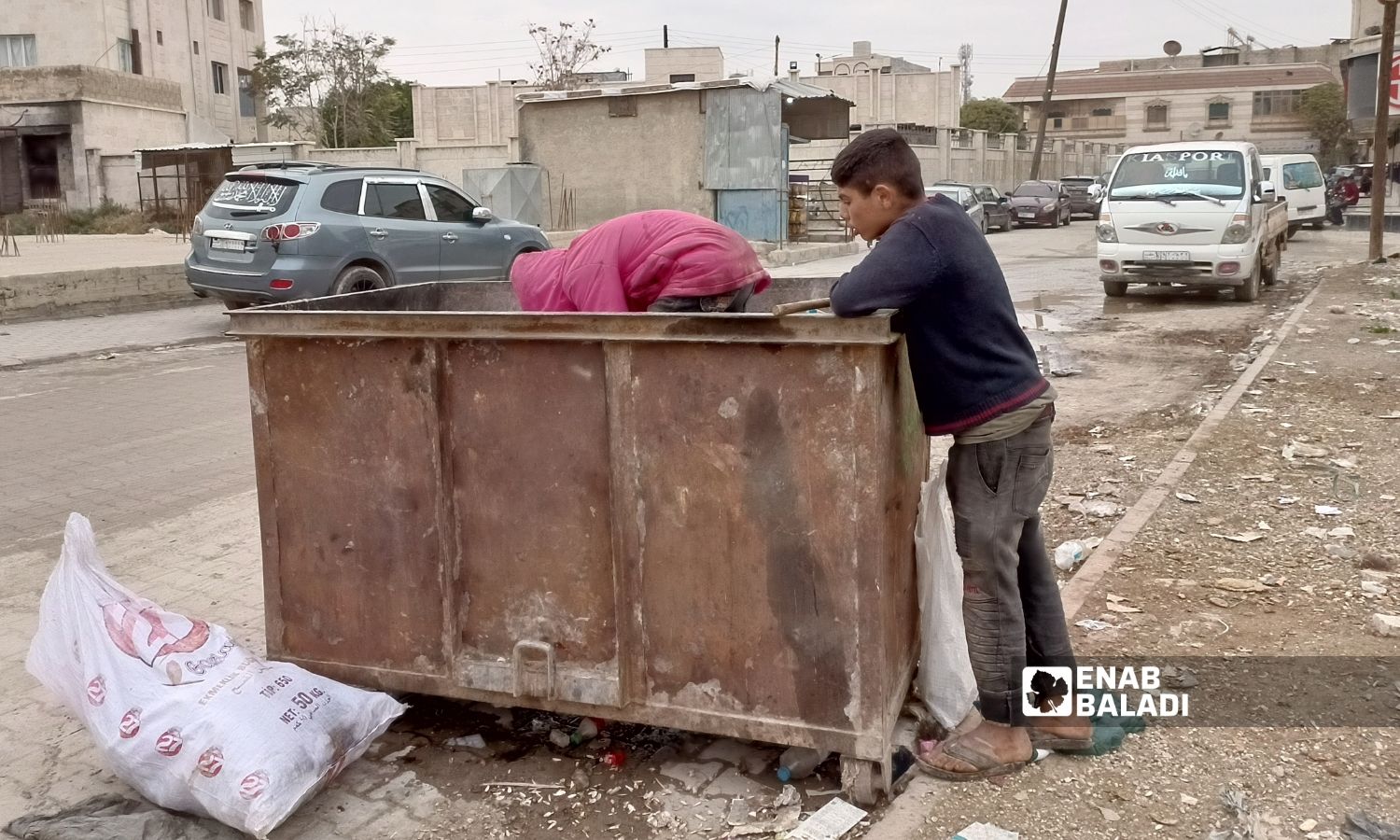



Enab Baladi – Azaz
The 13-year-old Hussein carries a bag larger than him on his shoulder and walks the streets of the border city of Azaz in northern Syria, searching for recyclable waste.
Hussein lost his father as a result of the bombing of their house in the countryside of Aleppo, which forced them to flee to the IDP camp of al-Rayyan near Azaz city, accompanied by his mother and five siblings.
“Our suffering began from here,” Hussein told Enab Baladi, with a sigh, describing the difficulty of what he goes through on a daily basis.
Hussein was forced to drop out of primary school after his father was killed to take responsibility for the family as an older brother.
“I go to the garbage dumps every day looking for cardboard and tin,” Hussein said, adding that it was the only job option he found due to his young age.
“I can bear the bad smell and fatigue just to secure the price of food for my family,” Hussein added.
Mohammad, 12, and his brother, three years older than him, live in similar circumstances, as they leave their home before sunrise and do not return until after sunset in search of recyclable waste.
Mohammad told Enab Baladi that he has 12 brothers, four of whom collect tin, cardboard, and plastics.
“My brothers are young, and the four of us are in charge of the house,” said Mohammad, explaining the reason that forced them to do this work and its difficult conditions, which depend on the weather.
Mohammad explained that the winter makes their work more difficult, especially in the event of rain or snow that impedes their access to waste dumps.
The daily wage for Mohammad and his brothers ranges between 25 and 30 Turkish liras each. Such income, in the best cases, falls below the poverty line, based on international classifications, at about 1.9 USD per day per person, according to the Syrian Response Coordination Group (SRCG).
Abu Saado (In his fifties), who owns a center for buying and selling recyclable waste, said that he meets dozens of children between the ages of 8 and 15 every day, most of whom collect “tins.”
He added that “If the child wants to lift a cardboard sack on his back, he will not be able to collect more than seven kilos of weight,” describing the limited income of the children in exchange for the difficulty of their work.
Abu Saado, who preferred to withhold his full name for social reasons, said that traders buy waste by weight, and the price of a kilogram of cardboard is estimated at 1 TL, while the price of a kilogram of tins is 1.5 TL.
Children interviewed by Enab Baladi said that the owners of the centers buy a kilo of cardboard for half a lira and tins for 1 TL.
Owners of the garbage centers sell the recyclable waste to merchants who transport it to Turkey, where it is recycled, according to Abu Saado.
Such suffering comes in light of the deteriorating living conditions, as the percentage of families below the poverty line reached 87.1%, based on basic prices and income sources, according to the statement by the SRCG on the indicator of hunger, poverty and economic costs for families in northwestern Syria issued last October.
Also, the proportion of families under the hunger limit reached 39.15% of the total families below the poverty line due to several considerations, the most important of which is the number of working family members and the changing exchange rates.
if you think the article contain wrong information or you have additional details Send Correction